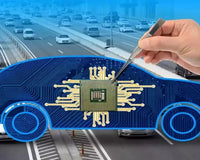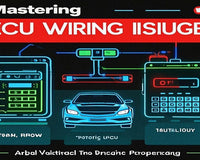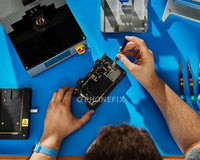Have you ever found yourself in a frustrating situation where you're sitting in your car, ready to drive, only to realize that your car won't shift gears? It can be a perplexing and even a bit scary moment, especially if you're in the middle of traffic or in a hurry. Don't worry, we're here to demystify the reasons why your car won't shift gears. Whether it's a minor mechanical issue or something more complex.
There are several reasons why your car not shift gears properly, and understanding these can help you diagnose and address the issue effectively.
1. Low or Dirty Transmission Fluid.
One of the most common causes of shifting problems is low or dirty transmission fluid. Transmission fluid not only lubricates the moving parts within the transmission but also plays a crucial role in hydraulic pressure needed for shifting gears. If the fluid level is low or the fluid is old and contaminated, it can lead to overheating and improper lubrication, ultimately affecting the gear shifting process.
2. Problems with the Transmission Control Module (TCM).
The Transmission Control Module (TCM) communicates with the engine control module, acting as the transmission system’s brain, to effectively handle gear shifts. A TCM fault could cause delays, inconsistencies, or even no shifting. Since the fault does not always cause the “Check Engine” light to illuminate, therefore, you may need to perform a scan diagnostic on the TCM with the PCMtuner programmer and reset or replace the TCM if necessary.
3. Electrical Issues.
For modern vehicles, many shifting functions are controlled electronically. If there’s a fault in the electronic control unit (ECU) or issues with the wiring and connectors, it might lead to shifting problems. Diagnosing electrical issues often requires specialized diagnostic tools, such as FLIR ONE PRO Thermal Camera.
4. Shift Linkage or Cable Problems.
In both manual and automatic transmissions, the shift linkage or cable connects the gear lever to the transmission. If this linkage is misaligned, damaged, or out of adjustment, it can result in the gear shift not functioning correctly. Inspect for visible issues in the linkage and make adjustments as necessary. Employing MPM OTG Programming diagnostic scanner can help in detecting error codes related to the transmission system, which may provide further insight on cable or linkage problems.
5. Clutch Failure.
A worn clutch can significantly affect gear shifting, especially in manual transmissions. When the clutch fails, it may not fully disengage, making it difficult to shift gears smoothly. Signs of a faulty clutch include a spongy or hard clutch pedal, unusual noises, or grinding when changing gears. If clutch failure is suspected, it’s advisable to consult a professional mechanic for inspection and possible replacement.
Identifying the specific reason your car won't shift gears often requires a systematic approach. By checking fluid levels, inspecting mechanical components, and ensuring electrical systems are functioning properly, vehicle owners can tackle these issues effectively.
In conclusion, a car that won't shift gears can be attributed to a wide range of factors. By being aware of these potential causes, you're better equipped to diagnose the problem early on. If you've tried some of the basic checks we've discussed and still can't figure out the issue, it's always wise to consult a professional mechanic. Remember, timely intervention can not only save you from a major breakdown but also help you avoid costly repairs in the long run. Here's to trouble - free motoring!
Car Won't Shift Gears? Urgent Reasons You Need to Know Now!










